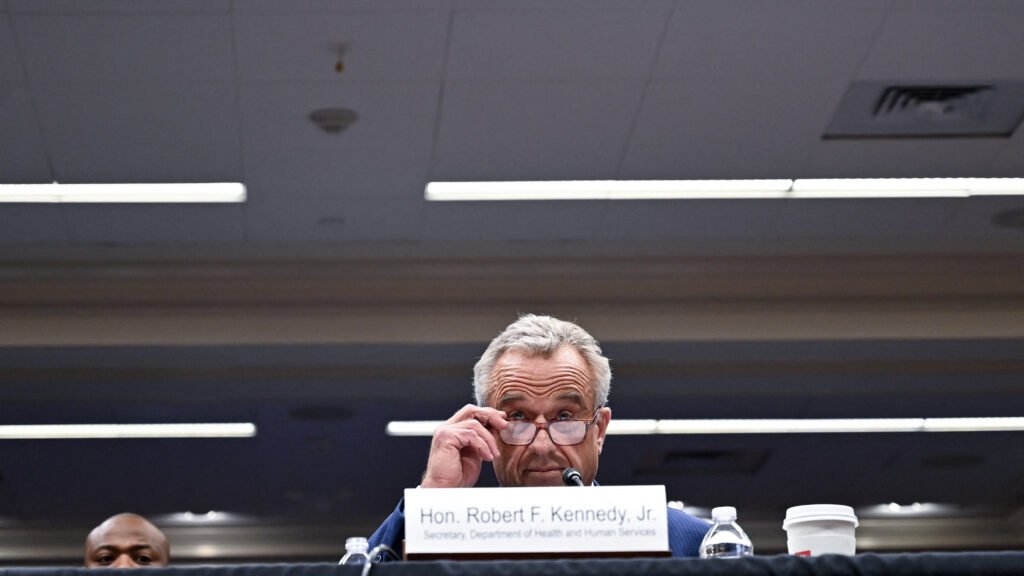Red State Researchers Face Challenges as Only Some Grants Reinstated
Following a tumultuous spring where over $1 billion in NIH grants were terminated nationwide, researchers are finally seeing some relief. A federal judge recently ordered the reinstatement of a wide range of grants, deeming the terminations “void and illegal.” However, this ruling only applies to grants submitted by plaintiffs in specific lawsuits, leaving researchers in Republican-led states at a disadvantage.
Cheri Levinson, an eating disorder researcher in Kentucky, expressed her frustration, stating, “I just don’t see how a judge can rule that something is discrimination, but only in certain states.” This disparity highlights the uneven playing field that has emerged, with some institutions able to resume normal operations while others are left to navigate negotiations with the NIH independently.
RFK Jr. Approves New Vaccine Recommendations
Health Secretary Robert F. Kennedy Jr. has recently signed off on new vaccine recommendations, marking the second time since taking office. These recommendations include the endorsement of a new meningococcal vaccine and an expansion of the eligible population for an RSV vaccine. The CDC’s expert vaccine panel approved these recommendations in April, awaiting formal approval from the health secretary.
The meningococcal vaccine, GSK’s MenABCWY, can now be administered to healthy individuals aged 16 to 23 and those aged 10 and older at increased risk of meningococcal disease. The RSV vaccine recommendations now include people aged 50 to 59 with underlying health conditions. These recommendations signify progress in expanding vaccine coverage and protection against infectious diseases.
Protecting Pilgrims from Disease While Respecting Faith
The Maha Kumbh Mela in India brought together over 660 million pilgrims earlier this year, leading to health consequences for some travelers. Physician Jake Scott has treated Americans who fell ill after participating in ritual bathing in India’s sacred river, facing diagnoses ranging from typhoid fever to gastrointestinal infections.
Scott emphasizes the need to balance disease prevention with religious practices, highlighting the challenges of maintaining sanitation during mass gatherings. Practical steps can be taken to mitigate health risks without compromising the spiritual significance of pilgrimages, ensuring the well-being of participants.
Disability Activist Addresses Impact of Tax Bill
Latoya Maddox, a disability rights activist, has been vocal about the real-life consequences of proposed cuts to federal health care programs. Maddox, who requires 24-hour care due to her disabilities, has protested against Medicaid cuts that could jeopardize her health and livelihood.
In a candid interview, Maddox sheds light on the challenges faced by people with disabilities in the wake of potential cuts to health care spending. Her advocacy highlights the critical need for accessible and affordable care for individuals with disabilities, emphasizing the human impact of policy decisions.
Esketamine Proves Effective for Depression
A recent study published in JAMA Psychiatry has shown the efficacy of esketamine as a standalone therapy for treatment-resistant depression. Administered as a nasal spray, esketamine demonstrated significant improvements in participants’ depressive symptoms over a three-year clinical trial.
The study found that esketamine reduced the severity of depression in a majority of participants, with manageable side effects such as nausea and headache. This research builds on the FDA’s expanded approval of esketamine as a standalone treatment, offering new possibilities for individuals struggling with depression.
Featured Reads
- Wisconsin Supreme Court strikes down 176-year-old abortion ban, AP
- Insurers uncertain about coverage for childhood vaccines if government stops recommending them, Wired
- Biotech industry memo labels RFK Jr. as a ‘direct threat to public health,’ STAT
- AI hints at chatbot involvement in biomedical research papers, New York Times


